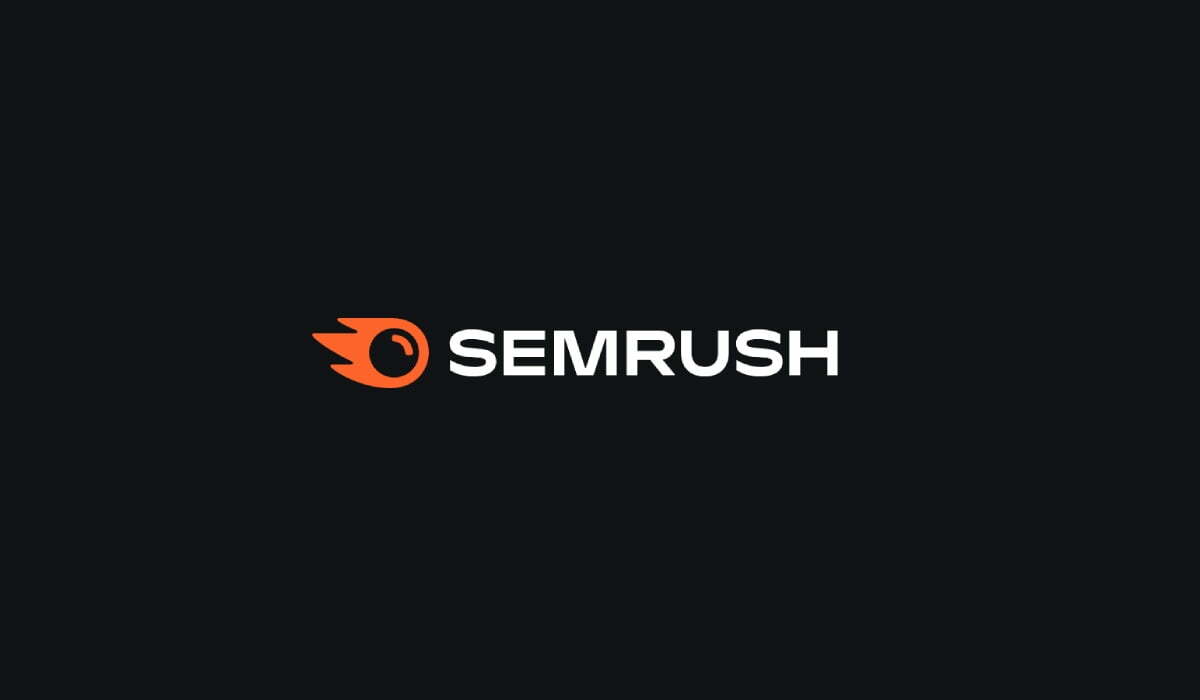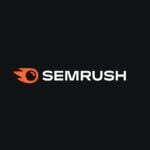



Every trade has its tools. Carpenters have their hammers and saws. Chefs have their pots and pans. Here in the world of SEO, we have—well, we have complex, multifaceted subscription software with a mind-boggling number of different features.
Some people believe you can do SEO without this software. Technically, that’s true—just like you could find a cave, live in it, and call yourself a carpenter, or cook an egg on the sidewalk in the midsummer heat and call yourself a chef.
Want to do SEO successfully? You need tools!
Tools of the trade are expensive, though. Most SEO agencies (including our own) will use several tools in conjunction—the function of these tools will often overlap, but they never offer the exact same features.
This can make things challenging for people new to SEO. With the price point of SEO tools as high as it is, you might only be able to afford one.
Ahrefs and Semrush are two of the best, most comprehensive subscription SEO tools on the market. The SerpFocus team uses both—but if you can only afford one, which one should you pick? That’s what I’m here to help you decide today.
Keyword research is all about finding out:
Both of these tools offer excellent keyword research functionality—but each has its quirks. Let’s compare!
Both Ahrefs and Semrush provide a ton of data to help you target the right keywords. At a glance, you’ll be able to see:
Keyword search volumes in the country you’re targeting
Each platform gives you data that goes above and beyond the basic data, but neither offers exactly the same features. Let’s compare:
 Ahrefrs
Ahrefrs Semrush
SemrushThat list might look a little one-sided—but we’re only at the first step of keyword research.
To expand a bit on all of these points, Ahrefs will tell you how many people who search for a keyword click on organic results and tells you how much traffic you’re likely to get if you rank #1 for a keyword and thus rank higher for longtails that include that keyword.
Both Ahrefs and Semrush tell you how many backlinks you’ll need to rank well for a keyword, but Semrush is sometimes inconsistent, opting to simply tell you you’ll need “a lot” of backlinks.
Semrush’s killer feature is the ability to identify and filter through keyword intent. This is a boon for anyone trying to target keywords with commercial intent and a great way to curate your content based on keyword intent.
For keyword data, I believe that Ahrefs has a slight edge.
It’s a tie. Both Ahrefs and Semrush allow you to generate lists of keywords based on a seed keyword, and you can view search volume and keyword difficulty at a glance. Both are excellent for finding longtails to target, and you can’t go wrong with either tool.
When it comes to campaigns that focus on both SEO and PPC, Semrush is the clear winner. Semrush will provide you with a ton of data from Google Ads, including:
Data offered by Ahrefs is comparatively limited, and it doesn’t advertise itself as a PPC tool.
Here, Ahrefs is the clear winner. Semrush only lets you do keyword research on Google, while Ahrefs allows you to check keywords on:
Some of these are essential for SEO in markets like China, while others (like YouTube) are important for social media campaigns.
Semrush—if you’re doing PPC campaigns or you care about filtering by intent. I care about both of those things, so while I use both Ahrefs and Semrush, I use Semrush slightly more. For international campaigns, however, Ahrefs might be your best choice. These are both excellent keyword research tools, though, and you can’t go wrong with either.

If diamonds are a girl’s best friend, then backlinks are an SEO specialist's best friend—though, unlike diamonds, backlinks will leave you if you’re not careful.
Both Semrush and Ahrefs offer excellent tools for backlink analysis. The core of these tools is the ability to tell you which web pages contain links to other web pages—most importantly, to your own web pages and to your competitors’ pages.
Semrush has a larger database for analyzing backlinks—in other words, it monitors more pages and the links from those pages. That means you’re getting more accurate data from Semrush and a better idea of which websites you might be able to contact for backlinks.
Both tools offer a lot of information about backlinks, including:
With all of this information, you’ll learn not only which pages are linking to which, but also why those links are on those pages. That’s great for off-page SEO—but we can do even better for competitor analysis.
Semrush and Ahrefs both offer competitor analysis backlink tools—these tools are called Backlink Gap and Link Intersect, respectively. They both allow you to search which sites are linking to certain domains (your competitors) but not to other domains (yours). Ahrefs’ tool is a bit better because it allows you to compare to 10 domains at once, while Semrush limits you to four.
Finding broken backlinks is an invaluable part of off-page SEO. Both Ahrefs and Semrush offer tools to help you find broken links pointed to your competitors’ domains. The idea is simple—you find inbound links to your competitors, then email the websites that are linking to them. You ask them to redirect their links from your competitor’s broken content to yours. It’s a win-win, and you get extra authority.
I prefer Ahrefs approach to this tool—it’s incredibly easy to access through Site Explorer. You simply go to “Backlink profile” then “Broken backlinks” and run the report. Getting to Semrush’s broken link feature requires a bit more arcane knowledge. You need to:
Semrush offers two features that Ahrefs doesn’t, and they’re both useful.
The first feature, backlink auditing, allows you to search for toxic links, then automatically create a list of these links to send to Google to disavow. Not every SEO analyst worries about toxic links, but if you do, this can be a handy feature.
The second feature, link building, is incredibly handy. You can use this tool to generate a list of domains that Semrush believes backlinks would be especially beneficial from. The tool then allows you to flow through an outreach pipeline, even enabling you to email the folks in charge of the domain directly through Semrush. Once the first email is sent, you’ll also be able to send a follow-up.
Semrush. With a larger database and more features, it’s the better tool for analyzing backlinks and improving your off-page SEO.
Even SEO experts make mistakes sometimes, and between content, site architecture, and constant updates, something is bound to go amiss eventually. The SEO audit features offered by both Ahrefs and Semrush can help you spot technical problems and fix them—they’ll also help with some on-page SEO.
No matter which tool you choose, Semrush and Ahrefs will help you find:
Both tools tackle many of the same potential technical problems, so they’re hard to compare on that axis. There is a clear winner, however. To find out which it is, let’s compare a few technical audit features that both tools offer.
Ahrefs has a very straightforward Structure Analysis feature. This feature generates an easy-to-read graph of how many clicks any given page is away from your home page. You’ll want to keep most pages within no more than 2 clicks from your home page, and the graph is a great way of visualizing how deep your site’s structure goes.
Semrush’s tool is a bit different. Rather than evaluating your site structure, it offers a function that allows you to monitor which pages are linking to which—the Internal Link Distribution report. With it, you can ensure that all of your high authority pages pass some of their authority onto your lower authority pages.
A good user interface can help you focus on the technical problems that have the biggest impact on your SEO. Between Semrush and Ahrefs, I prefer Semrush’s interface. Ahrefs will sometimes point to things like noindex tags and 3xx redirects as being “problems” when they’re actually intentional. Semrush, conversely, gives you a list of top issues that I’ve found more accurate - and actionable.
And while it’s not technically a technical SEO feature, Semrush also offers a number of content-related suggestions during site audits, including keywords you can add, structured data suggestions for rich results, and more.
Semrush—and this time, it’s not particularly close. I prefer its user interface, I find the Link Distribution report more useful than the Structure Analysis tool (because I preemptively ensure our sites have a shallow structure), and I like the content auditing Semrush provides.
Rank tracking is a key component of any great SEO tool—it’s the feature that keeps track of the keywords you want to rank for and tells you where you rank for those keywords over time.
Both Semrush and Ahrefs do a great job with keyword tracking. Semrush, however, updates your rankings almost daily, while Ahrefs only does so weekly—unless you pay extra for daily updates.
In addition, Semrush offers some other unique features, like a Visibility score. This feature monitors not only your rank but also factors in CTR.
Imagine you’re trying to get two pages to rank for two keywords. One page is rank 1 for one and rank 100 for the other; the other page is rank 50 for both keywords. In this circumstance, both would have a “position” score of 50, but the page that ranks first for a keyword would have a much higher Visibility score.
Semrush. With more frequent updates and more robust features, it’s the better tool for rank tracking—though the rank tracking for Ahrefs does the job pretty well.
Both tools offer excellent and straightforward support—a bot will answer simple questions, while more complex questions can be sent to a live agent. All you have to do is click the chat button, follow the instructions, and you’ll be talking to a human in no time.
My experience with support from both companies is great. These tools aren’t cheap, after all, and good customer support helps with retention and encourages you to continue using its tools.
It’s a tie. Both offer fast, friendly, easy-to-access support. As they should.
This is obviously a subjective question—which features are “best” depends heavily on your project and your goals. There are a few distinguishing factors between the two tools that I’d like to highlight, however.
First, we’ve got two features we’ve already discussed: Semrush’s PPC tools and Ahrefs multi-search engine support. For PPC campaigns, Semrush is the way to go. They have a PPC competitor analysis feature that enables you to hone in on the perfect keywords to target in your campaign.
Ahrefs’ search engine support is pretty straightforward—you can use it to analyze keywords on multiple different search engines.
Another handy Ahrefs feature is its Content Explorer. It helps you generate keyword ideas by showing you websites that are ranking for those keywords. You’ll be able to see how much traffic those pages are gaining through organic searches and social media. You’ll also be able to see a breakdown of exactly how many clicks the page is getting for keywords related to the one you inputted.
For those of you who are focused on local SEO, Semrush has a lovely feature—local listings. With it, you can easily optimize your NAP citations and find new citation opportunities.
It’s a tie. Both of these tools have unique features that might convince you to buy one over the other. I tend to prefer Semrush for local campaigns and Ahrefs for campaigns with an international focus.
Best value, like best features, is subjective. We’re comparing apples to oranges here, as both of these tools have unique features that you’ll value differently depending on the scope and nature of your projects.
I’m not going to go over the features again here—I hope the rest of the article has helped you determine which tool is the most useful for your needs. What I will do, however, is compare pricing—because even if one tool offers a little more than the other for your needs, you might decide that the extras aren’t worth the difference in price.
Here’s Ahrefs’ pricing model:
And here’s what Semrush has to offer:
Each of these tools has additional features you can add on for extra each month. One of the most important features is the ability to add extra users. If you’re a relatively small agency— most of us start as just one person behind a screen—extra users won’t be particularly important. The ability to scale up, however, is quite useful as your agency grows.
One important difference between the two is that Ahrefs charges for usage—if you want to run more than the report limit offered in each of the plans, you’ll have to pay extra.
I can’t tell you who to pick based on features. On cost, however, Semrush is the clear winner in most categories. Its best plan is dramatically less expensive than Ahrefs, and you don’t need to worry about report limits. Ahrefs Lite plan is less expensive than Semrush’s Pro plan, but the features offered by that plan are somewhat limited. Semrush also offers integrated PPC, which has incredible value if you plan on running ads.
With Semrush winning in yet another category, it’s time for my conclusion. You can probably guess who is going to win the prize purse.
Semrush, by a pretty wide margin. In my opinion, it offers better pricing, great PPC features, and better rank tracking and features.
Why would you choose Ahrefs over Semrush? There are a few reasons. E-commerce projects might benefit from Ahrefs’ ability to research keywords over multiple search engines. Ahrefs Content Explorer is also an excellent tool if you’re finding challenges in your keyword research, especially for finding trending topics, running social media campaigns, and matching content to keywords.
While I highly recommend Semrush, our team actively uses both of these tools for our campaigns—each has its strengths. You can’t go wrong with either one—match the features of each to your campaign, pick one, and get ready to grow your agency.
I hope this article helped you choose the right SEO tool for you. I want to emphasize the point that you can’t go wrong with either of these tools—having either is infinitely better than having none at all. Have any other questions about which tools are right for you? Feel free to shoot us an email.

Semrush Position Tracker

Leave a Reply
You must be logged in to post a comment.